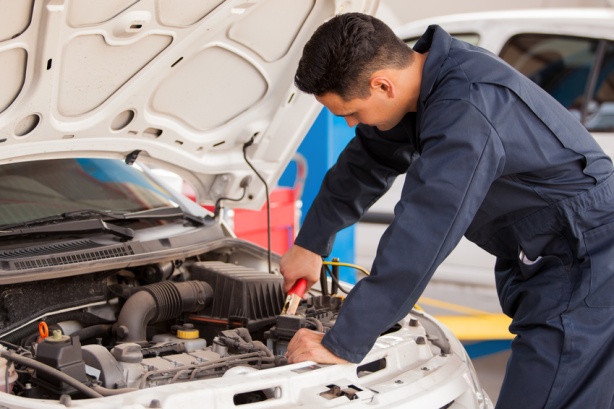The main purpose for any automotive battery is to start the engine. These Batteries uses less than three percent of its capacity to start the engine. As soon as the engine starts, the power for the car is supplied by the alternator. These batteries are designed to discharge high voltage of current and then recharge quickly. Most of the SLI or lead -acid battery provides 12 Volts of direct current.

The car battery usually has a life about 5 years. But, did you know that the Battery which we assume dead are actually good batteries. They just don’t produce enough power to start a car engine but it does discharge little power which can be used for smaller things. The power discharged from a dead battery is enough for the lights and fans in our house. Instead of putting it in the carriage or simply returning it to the service person we can put these batteries to a good use.
It can be used to charge a solar panel of 20 watts using the charge controller. In another instance the lead from the dead battery can be recycled into solar cells.
If unsure about how to use the dead car battery, please ensure that it is disposed /recycled properly. The best way is to always return it to your mechanic or service provider who will in turn see to that, it is recycled properly.
The heavy metals in the battery may pollute the environment to a greater extent. It can pollute the air and water around us. Nearly 90% of the heavy metals and toxic chemicals in lead-acid batteries can be recycled. Thus, if unsure about how to use the dead car battery, please ensure that it is disposed /recycled properly.
 Lead is an important and major component in all batteries. If not handled with care it can be hazardous and can harm the environment and people around. People living around the facilities that process lead are highly prone to get lead- poisoning where they have very high blood lead levels.
Lead is an important and major component in all batteries. If not handled with care it can be hazardous and can harm the environment and people around. People living around the facilities that process lead are highly prone to get lead- poisoning where they have very high blood lead levels.
